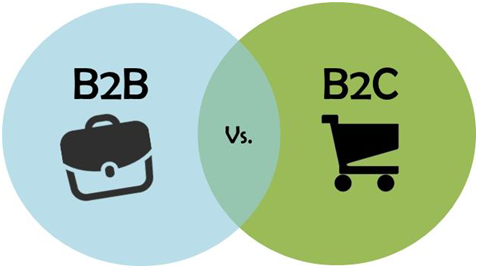In the continuously evolving healthcare region, the interplay between Business-to-Business (B2B) and Business-to-Consumer (B2C) markets performs a vital function in shaping the industry. Understanding the significance of those markets is vital for stakeholders as they navigate a complicated surroundings pushed by innovation, law, and client wishes.
The B2B Landscape: Collaboration and Innovation
B2B transactions function the backbone of the healthcare industry, facilitating the change of products and offerings amongst corporations. These transactions, starting from pharmaceutical corporations buying uncooked substances to clinical tool manufacturers providing hospitals, underpin the healthcare supply chain.
A big advantage of the B2B marketplace in healthcare is its recognition on collaboration.
Companies on this quarter often shape strategic partnerships and collaborations to drive innovation and deal with complex challenges. For instance, pharmaceutical organizations collaborate with Contract Research Organizations (CROs) to behavior medical trials, main to the development of recent pills and cures.
Moreover, B2B transactions in healthcare often contain lengthy-term relationships and contracts, imparting stability and predictability within the supply chain. This reliability is essential for making sure the availability of important healthcare services and products, in particular all through crises or supply chain disruptions.
The B2C Arena: Empowerment and Personalization
In comparison, the B2C marketplace in healthcare concentrates on handing over products and services without delay to consumers. With the emergence of digital technologies and evolving patron expectations, the B2C panorama in healthcare has undergone huge transformation.
One of the number one drivers of this modification is the developing emphasis on patron empowerment and personalization. Patients are now lively individuals in their healthcare adventure, in place of passive recipients of services. B2C businesses leverage information analytics and digital structures to tailor healthcare reviews, supplying solutions that cater to person wishes and options.
Furthermore, the upward thrust of direct-to-patron (DTC) healthcare manufacturers has disrupted conventional distribution channels, permitting purchasers to get right of entry to products and services simply. From online pharmacies to telemedicine platforms, DTC brands are reshaping healthcare shipping, empowering clients with more choice and control over their fitness.
Interplay Between B2B and B2C: A Synergistic Relationship
Although B2B and B2C markets in healthcare function in another way, they may be inherently interconnected, fostering a synergistic dating that drives innovation and enlargement. B2B groups depend on client insights and market tendencies to expand services and products that meet evolving needs. Conversely, B2C organizations depend on B2B partners for the deliver of extremely good healthcare merchandise and technology.
This interaction between B2B and B2C markets creates a dynamic surroundings in which collaboration and innovation flourish. For instance, scientific device producers collaborate with healthcare companies to broaden innovative answers that enhance affected person results and operational efficiency.
Moreover, the convergence of B2B and B2C markets is increasingly normal in healthcare.
Traditional B2B organizations are adopting direct-to-customer strategies to diversify revenue streams and interact at once with give up-customers. Conversely, DTC manufacturers are partnering with B2B suppliers to scale operations and make certain product satisfactory and compliance.
Navigating Forward The significance of B2B and B2C markets in healthcare is paramount.
While B2B transactions drive collaboration and innovation, the upward push of B2C manufacturers is reshaping purchaser expectancies and fostering customized healthcare reviews.
Stakeholders within the healthcare enterprise ought to well known the interdependence between B2B and B2C markets and regulate their strategies for this reason. By promoting collaboration, embracing virtual innovation, and prioritizing customer-centric procedures, businesses can navigate the complexities of the healthcare landscape and foster in the future.
The author is the Founder & CEO of Nexus Healthtech Private Limited – Maatri (https://www.maatri.in )

